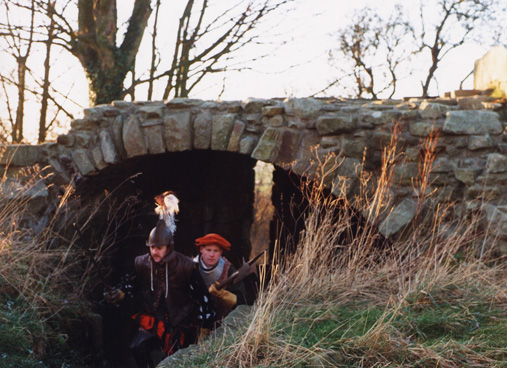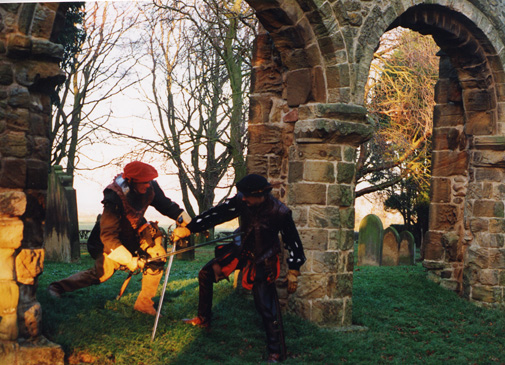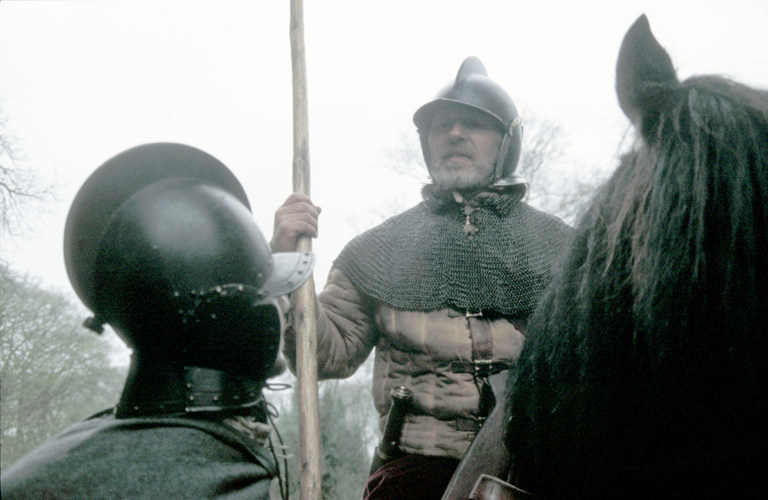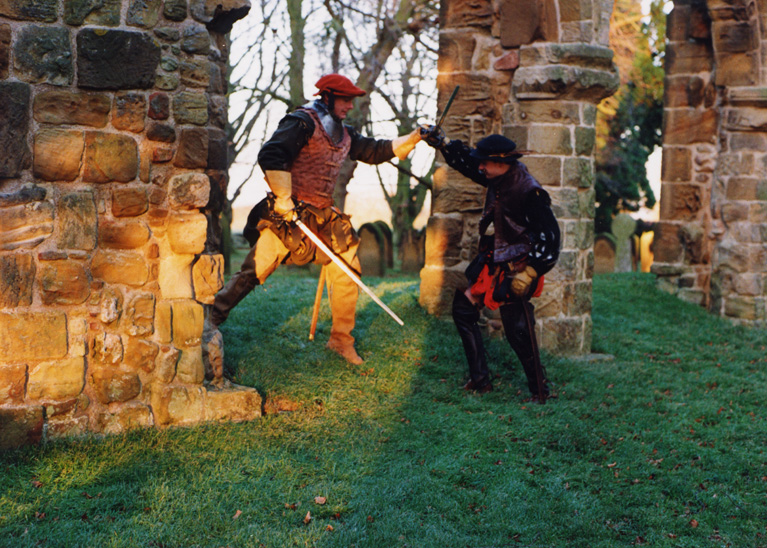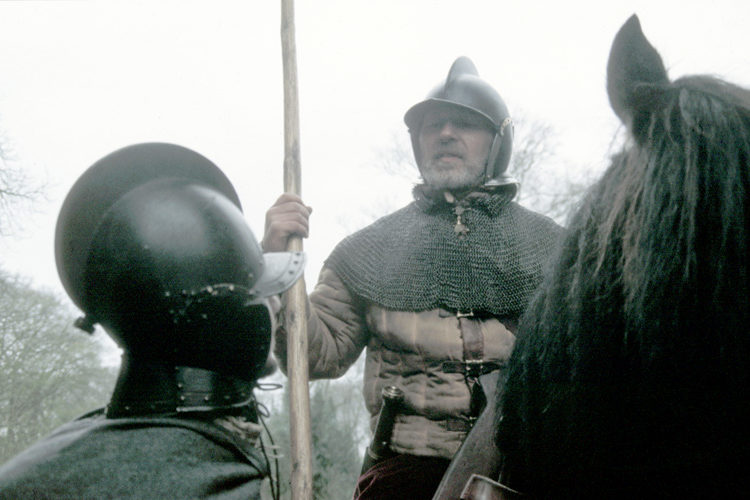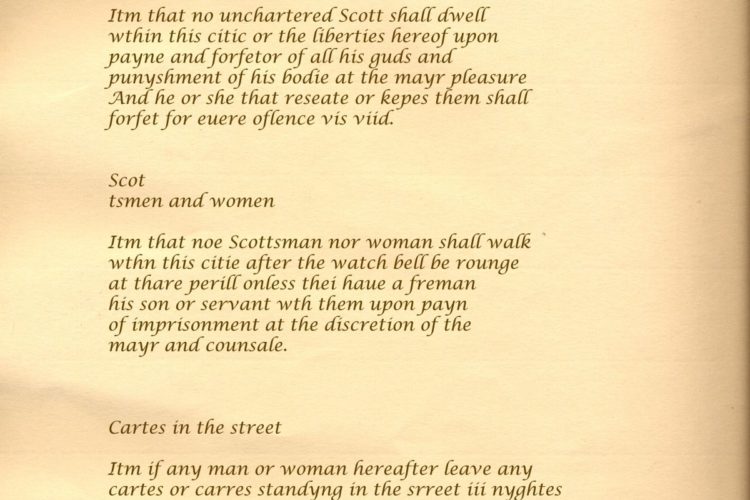The 'Peaceful Persuasion' And Transplanting Of The Marchmen By James VI Scotland & I England/Scotland…
Walter Scott of Harden or Auld Wat of Harden a celebrated Reiver
Walter Scott of Harden
Walter Scott of Harden or “Auld Wat” of Harden, a celebrated Reiver
“Auld Wat” of Harden was a notorious Reiver in his day. He famously remarked, as he passed a haystack on returning from a raid, “Aye if ye had fower legs ye wouldnae stand there lang”. A later and more celebrated Walter Scott, “The Bard of Abbotsford”, was a descendant of Wat of Harden.
Wat’s stronghold at Harden overlooked the Harden Glen; traditionally a hiding place for cattle reived by the Scots from across the Border. His old tower was demolished in 1592 on the orders of James VI and its exact location is now uncertain. The present mansion of Harden dates only from the 17th century.
In 1595 Wat of Harden and several Elliots stole 2 mares and a foal from the Gelt in July and 60 head of cattle from Triermain later in the year. In the following year his foray into Gilsland with 400 men netted 300 cattle and 20 horses; he burned 20 houses, stole £400 of goods and “mutilated” several people. In 1597 he raided Bellingham with 300 riders, killing 3 men and driving off 400 cattle.
The bare facts of these raids are stark reminders of the turbulent state of the Borders in the 16th century. Wat was involved in the rescue of Kinmont Willie from Carlisle and took part in the Raid of Falkland in 1592 when Bothwell tried to capture James VI. It was this exploit that led to the demolition of Wat’s stronghold at Harden.
A popular tale about Wat is that at his marriage to a noted beauty, Mary Scott, his father-in-law agreed to keep him for a year and a day provided that Wat undertook not to forcibly take possession of the father-in-law’s house at the end of that period.
